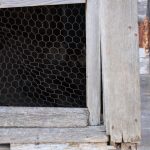Heat stress is a significant health concern for chickens due to their high sensitivity to elevated temperatures. Exposure to extreme heat can result in various adverse effects on chickens, including decreased egg production, reduced feed consumption, and potential mortality. Heat stress also compromises the chickens’ immune system, increasing their susceptibility to diseases and infections.
Moreover, it can lead to heat-related conditions such as heat exhaustion and heat stroke, which may be fatal if not addressed promptly. Chicken owners must understand these risks and implement preventive measures to protect their flocks. Heat stress occurs when chickens are unable to effectively dissipate excess body heat, resulting in an increase in their core temperature.
Unlike some animals, chickens lack sweat glands and rely on panting and wing-spreading behaviors to regulate their body temperature. However, these cooling mechanisms may become insufficient when ambient temperatures are excessively high, leading to heat stress. Common signs of heat stress in chickens include panting, lethargy, reduced egg production, and pale combs and wattles.
Recognizing these symptoms is crucial for chicken owners to take timely action and mitigate the negative impacts of high temperatures on their flock’s health and well-being.
Table of Contents
- 1 Providing Adequate Shade and Ventilation
- 2 Ensuring Access to Fresh, Cool Water
- 3 Adjusting Feeding and Supplementing with Electrolytes
- 4 Monitoring and Managing Heat-Related Illnesses
- 5 Implementing Cooling Methods
- 6 Seeking Veterinary Assistance when Necessary
- 7 FAQs
- 7.1 What are the common reasons for chickens dying in the heat?
- 7.2 How can I prevent dehydration in chickens during hot weather?
- 7.3 What are some signs of heat stress in chickens?
- 7.4 How can I help chickens stay cool in hot weather?
- 7.5 What should I do if I suspect a chicken is suffering from heat stroke?
Key Takeaways
- Heat stress in chickens can lead to decreased egg production, poor growth, and even death
- Adequate shade and ventilation are essential to help chickens cope with heat stress
- Access to fresh, cool water is crucial for chickens to regulate their body temperature
- Adjusting feeding and supplementing with electrolytes can help chickens maintain their electrolyte balance
- Monitoring and managing heat-related illnesses is important to prevent serious health issues in chickens
- Implementing cooling methods such as misting systems or fans can help lower the temperature in chicken coops
- Seeking veterinary assistance is necessary if chickens show signs of severe heat stress or illness
Providing Adequate Shade and Ventilation
Shade and Ventilation: The Key to a Cooler Coop
One of the most important steps in preventing heat stress in chickens is to provide adequate shade and ventilation in their living environment. Shade is essential for protecting chickens from direct sunlight and reducing the ambient temperature in their living space. This can be achieved by providing natural shade from trees or by installing shade cloth or tarps over the chicken coop and run.
Ventilation: Allowing Hot Air to Escape
Additionally, proper ventilation is crucial for allowing hot air to escape from the coop and bringing in cooler air. This can be achieved by installing windows, vents, and fans in the coop to promote air circulation. By providing adequate shade and ventilation, chicken owners can help their flock stay cool and comfortable even in hot weather.
Coop Location: Minimizing the Impact of High Temperatures
In addition to providing shade and ventilation, it is important to consider the location of the chicken coop. Ideally, the coop should be situated in a shaded area with good airflow to minimize the impact of high temperatures. This may involve relocating the coop to a more suitable location or planting trees and shrubs to create natural shade around the coop.
Reducing the Risk of Heat Stress
By taking these steps, chicken owners can create a more comfortable living environment for their flock and reduce the risk of heat stress.
Ensuring Access to Fresh, Cool Water

Access to fresh, cool water is essential for preventing heat stress in chickens. During hot weather, chickens may drink more water to stay hydrated and regulate their body temperature. It is important for chicken owners to ensure that their flock has access to an ample supply of clean, cool water at all times.
This can be achieved by providing multiple water sources throughout the coop and run and regularly checking and refilling them to ensure that the water remains cool and clean. Additionally, adding ice cubes or frozen water bottles to the waterers can help keep the water cool for longer periods. In addition to providing cool water, it is important to consider the type of waterers used for chickens.
In hot weather, shallow waterers are preferable as they allow chickens to easily access the water and cool themselves down by standing in it. Additionally, automatic waterers with a continuous flow of fresh water can help ensure that chickens have access to cool water throughout the day. By ensuring that their flock has access to fresh, cool water, chicken owners can help prevent dehydration and reduce the risk of heat stress in their chickens.
Adjusting Feeding and Supplementing with Electrolytes
During hot weather, it is important to adjust the feeding regimen for chickens to help prevent heat stress. High-protein feeds can increase metabolic heat production in chickens, so it may be beneficial to reduce the protein content of their feed during hot weather. Additionally, feeding chickens during the cooler parts of the day, such as early morning or late evening, can help reduce the impact of high temperatures on their metabolism.
It is also important to monitor feed intake during hot weather, as chickens may eat less due to the heat. By adjusting the feeding regimen for chickens during hot weather, chicken owners can help reduce the risk of heat stress and its negative effects on their flock. In addition to adjusting feeding, supplementing with electrolytes can help support chickens during hot weather.
Electrolytes can help replace essential minerals lost through panting and sweating, as well as support hydration and overall health. There are commercial electrolyte supplements available for chickens that can be added to their water or feed during hot weather. These supplements can help support the well-being of chickens and reduce the risk of heat-related illnesses.
By adjusting feeding and supplementing with electrolytes, chicken owners can help support their flock during hot weather and reduce the risk of heat stress.
Despite taking proactive measures to prevent heat stress, chickens may still be at risk of developing heat-related illnesses during hot weather. It is important for chicken owners to monitor their flock closely for signs of heat-related illnesses such as heat exhaustion and heat stroke. Common signs of heat-related illnesses in chickens include panting, lethargy, drooping wings, pale combs and wattles, and reduced activity.
If any of these signs are observed, it is important to take immediate action to manage the illness and prevent further complications. If a chicken is showing signs of heat-related illness, it is important to move them to a cooler area with shade and good ventilation. Additionally, offering cool water with electrolytes can help support hydration and recovery.
It may also be beneficial to gently wet the chicken’s feathers with cool water or place them in a shallow tub of cool water to help lower their body temperature. If a chicken’s condition does not improve or worsens, it is important to seek veterinary assistance promptly. Heat-related illnesses can have serious consequences for chickens if not managed effectively, so it is crucial for chicken owners to monitor their flock closely and take prompt action if any signs of illness are observed.
Implementing Cooling Methods

Cooling Stations for Chickens
In addition to providing shade and ventilation, creating cooling stations in the coop and run can be an effective way to help chickens stay cool. This can be done by placing shallow containers filled with cool water or ice blocks for chickens to stand in or drink from. This method can help lower their body temperature and provide relief from the heat.
Misting Systems and Sprinklers
Misting systems or sprinklers can also be installed in the coop or run to create a cooling effect through evaporation. These systems can help reduce the ambient temperature and provide a more comfortable environment for chickens.
Frozen Treats and Dust Bathing
Providing frozen treats for chickens to peck at during hot weather can be another effective cooling method. This can include frozen fruits such as berries or melons, as well as frozen vegetables such as peas or corn. These treats not only provide hydration but also help lower body temperature and provide enrichment for chickens. Additionally, providing dust bathing areas with damp soil or sand can help chickens cool down by allowing them to cover themselves in cool dirt.
By implementing these cooling methods, chicken owners can help their flock stay comfortable and reduce the risk of heat stress during hot weather.
Seeking Veterinary Assistance when Necessary
Despite taking proactive measures to prevent heat stress and manage heat-related illnesses, there may be situations where veterinary assistance is necessary. If a chicken’s condition does not improve or worsens despite efforts to manage heat-related illness, it is important to seek veterinary assistance promptly. Heat-related illnesses such as heat exhaustion and heat stroke can have serious consequences for chickens if not managed effectively, so it is crucial for chicken owners to seek professional help when necessary.
Additionally, if there are concerns about the overall health and well-being of the flock during hot weather, it may be beneficial to consult with a veterinarian for guidance on preventive measures and management strategies. A veterinarian can provide valuable advice on adjusting feeding regimens, supplementing with electrolytes, and implementing cooling methods tailored to the specific needs of the flock. By seeking veterinary assistance when necessary, chicken owners can ensure that their flock receives the best possible care and support during hot weather.
In conclusion, heat stress is a serious concern for chickens during hot weather, as it can have negative effects on their health and well-being. By understanding the risks of heat stress and taking proactive measures such as providing shade and ventilation, ensuring access to fresh, cool water, adjusting feeding regimens, monitoring for heat-related illnesses, implementing cooling methods, and seeking veterinary assistance when necessary, chicken owners can help protect their flock from the negative effects of high temperatures. It is important for chicken owners to be vigilant in monitoring their flock during hot weather and take prompt action if any signs of heat stress or illness are observed.
By taking these proactive measures, chicken owners can help ensure that their flock stays healthy and comfortable even in extreme temperatures.
If you’re looking for more information on keeping chickens healthy, you might be interested in this article on whether turkeys need a coop. Understanding the housing needs of different poultry can help ensure their well-being in various weather conditions, including extreme heat.
FAQs
What are the common reasons for chickens dying in the heat?
Common reasons for chickens dying in the heat include dehydration, heat stress, and heat stroke. Chickens are more susceptible to heat-related issues because they do not have sweat glands and rely on panting to cool down.
How can I prevent dehydration in chickens during hot weather?
To prevent dehydration in chickens during hot weather, make sure they have access to clean and cool water at all times. Consider adding electrolytes to their water to help replace lost minerals and nutrients.
What are some signs of heat stress in chickens?
Signs of heat stress in chickens include panting, lethargy, decreased egg production, and loss of appetite. It’s important to monitor your chickens closely during hot weather and take action if you notice any of these signs.
How can I help chickens stay cool in hot weather?
You can help chickens stay cool in hot weather by providing shade in their coop or run, using fans or misters to create airflow and lower the temperature, and offering frozen treats such as fruits or vegetables.
What should I do if I suspect a chicken is suffering from heat stroke?
If you suspect a chicken is suffering from heat stroke, move it to a cool and shaded area immediately. Offer it cool water to drink and gently wet its comb and wattles with cool water. Monitor the chicken closely and seek veterinary care if necessary.
Meet Walter, the feathered-friend fanatic of Florida! Nestled in the sunshine state, Walter struts through life with his feathered companions, clucking his way to happiness. With a coop that’s fancier than a five-star hotel, he’s the Don Juan of the chicken world. When he’s not teaching his hens to do the cha-cha, you’ll find him in a heated debate with his prized rooster, Sir Clucks-a-Lot. Walter’s poultry passion is no yolk; he’s the sunny-side-up guy you never knew you needed in your flock of friends!







